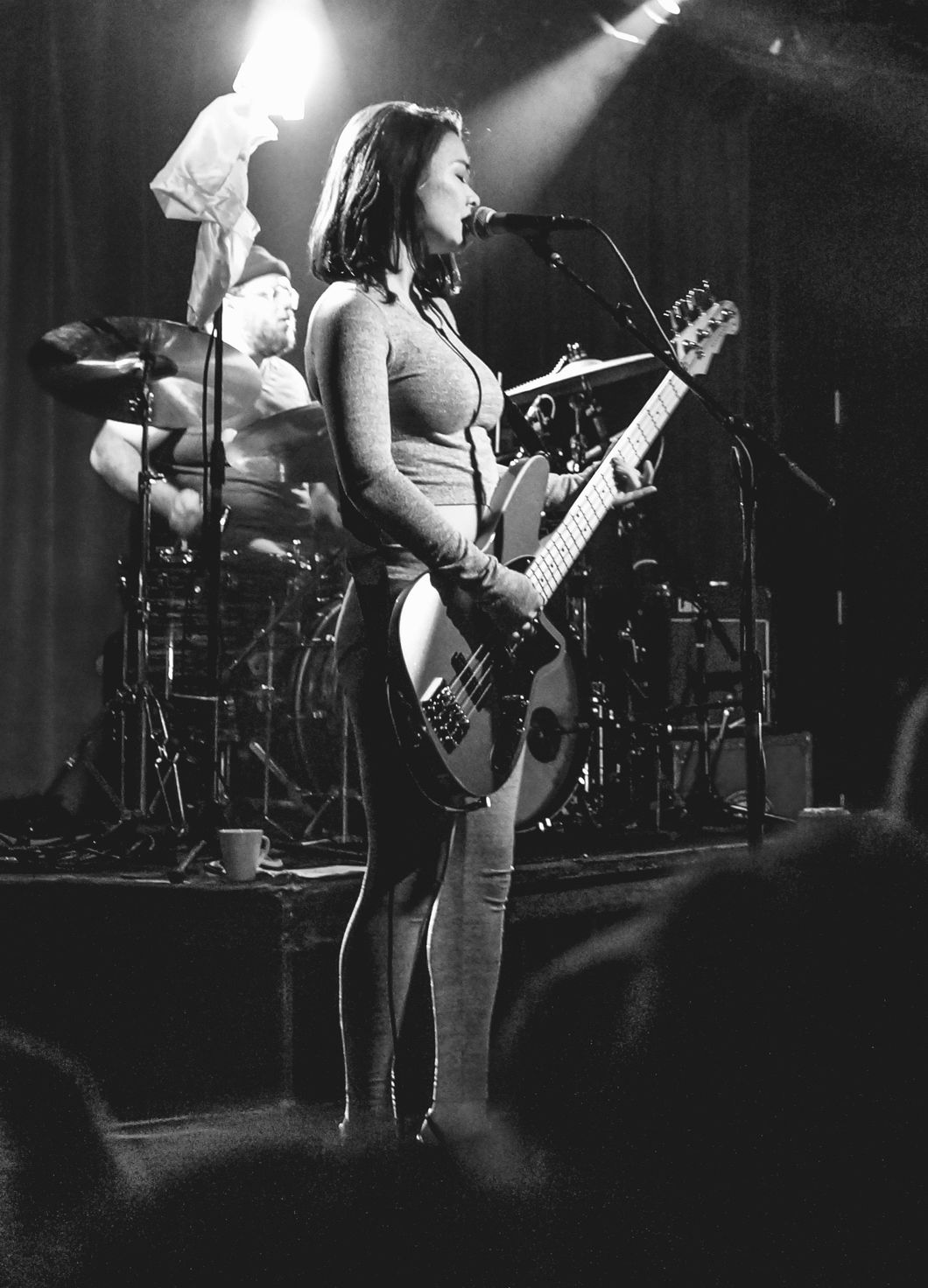"I've been stronger than I'm expected to be because I'm a woman. I'm weak and I'm not allowed to be, because then I lose my ability to control my destiny or whatever.", states Mitski Miyawaki in a recent interview with GQ, putting into words what I've been struggling to efficiently articulate for the longest time. This self-awareness exists in so many ambitious women with dreams & goals- we are allowed to be successful as long as we try ten times harder & sacrifice ten times as much. The divide is pretty visible in the world of music, & Mitski is an important & intelligent mouthpiece to voice the need for inclusivity, whether that's through her songs or interviews. While increased inclusivity helps female artists, artists that bring perspective & inclusion to their music are just as important for listeners such as myself, & Mitski is one of the best examples I can think of.
Mitski is truly a singer for this generation, or if that's too much of an extrapolation, she's at the least the singer I've needed- her lyrics are honest to a point, & seem to understand what so many other songs don't. She wants to be in love but recognizes how much of what she wants is just an idealization, such as being in love with the moment & mistaking it for the person. She wants to be praised for being a singer & lyricist because she is a singer & a lyricist, not because she is a woman good at being a singer & lyricist. She is a minority, & understands the struggles of reconciling homeland tradition & culture with the need to fit into American ideals. And above all, she is not afraid to make music about any of this- her songs reflect growing up & navigating through life in an intensely relatable way, & have helped me reflect & learn about myself.
In her most popular song, Your Best American Girl, Mitski tackles identity divides- the lyric "I guess I couldn't help but try to be your best American girl" resonates with me & the millions of other girls who come from immigrant families, who figured out for themselves what being a minority in America meant, & struggled with how to keep up with differences compared to their peers while maintaining a certain level of culture. I think we were all Mitski's worry at some point in our life- was I being too Indian that time in seventh grade I corrected my history teacher on a pronunciation? Or was that just my internal fears getting in the way of my confidence that I knew what I was talking about? How hard did I try once upon a time to be someone else's "best American girl?", & despite how much I love my culture & tradition am I still sometimes trying to reach that ideal?
If I'm honest, I'm not sure, but I know I'm on the journey to finding out, as is the girl in Mitski's song- there's a significant transition from "Your mother wouldn't approve of how my mother raised me/but I do, I think I do", to "But I do, I finally do." This gradual but permanent change encapsulates my path from a perceived need for conformity to appreciation & acceptance of my cultural identity. This inclusion of minorities & our specific experiences expands to the use of Japanese in the song First Love/Late Spring- it doesn't matter that the majority of Mitski's listeners won't understand what she's saying- all that matters is that she is unapologetic in the inclusion of her culture, & won't compromise that for western conformity.
I once joked that Mitski was possibly the closest thing I had to therapy sessions, but it's actually probably true. The song Nobody off her latest album, Be The Cowboy, is not only a certified banger, it covers the exact emotion of just wanting someone to be around you when things are down, but not having anybody around that wants to be that. Coming to college knowing absolutely no one at this school, this song was my soundtrack to quite a few nights of not knowing who to talk to because I just wasn't close enough to anyone I'd met yet- that's all changed now, but the fact that there is something I can play at 3 a.m. for this exact feeling is exactly how all of Mitski's music works. A song doesn't have to be happy to be satisfying, & often I just need something to sympathize with how I'm feeling instead of trying to fix the situation-like Mitski says, "I don't want your pity/I just need somebody near me".
As someone defined by a vested interest in music & feminism, finding an artist like Mitski feels like finding the rare pearl inside an oyster (an experience I have yet to actually do, so this metaphor may be for nothing)- someone who understands not only what it is like to grow up as a women of color is an over-saturated field, but who is able to put that into music. I don't want to be a musician, but going into a government field feels like it holds the same challenges of acceptance & inclusivity, & seeing Mitski find success without having to compromise her culture or identity, instead choosing to spread her experiences to a wider audience gives me hope I'll one day be able to do the same through a different medium.


















